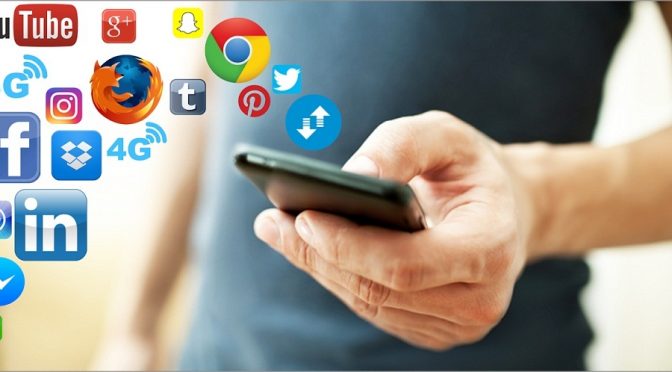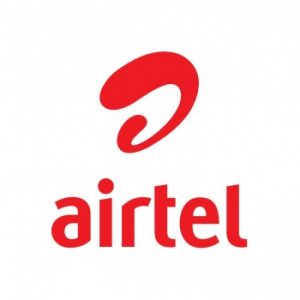From browsing the web, to streaming videos, to using social media, there are just too many ways to burn through your phone’s data allowance. Unless you’re lucky enough to have an unlimited plan, there’s a good chance you find yourself rationing your usage at the end of each month.
How to Use Less Data (and Save Money on Your Android Phone Bill) How to Use Less Data (and Save Money on Your Android Phone Bill) If you’re using an Android phone and want to use less data to save money, these tips will help you out. Read More
There are ways to get around the problem. With the right choice of apps, you can reduce how much data you use without having to reduce how much you use your phone. Let’s take a look at some of the best data saving apps for Android.
Opera Max
Opera Max is a VPN app that uses compression to reduce your data usage by as much as 50%. Whenever one of your apps makes a connection to the internet, the connection goes via Opera’s servers. They compress any data before it downloads to your phone. It monitors both mobile and Wi-Fi data, and it works with just about every app, including YouTube.
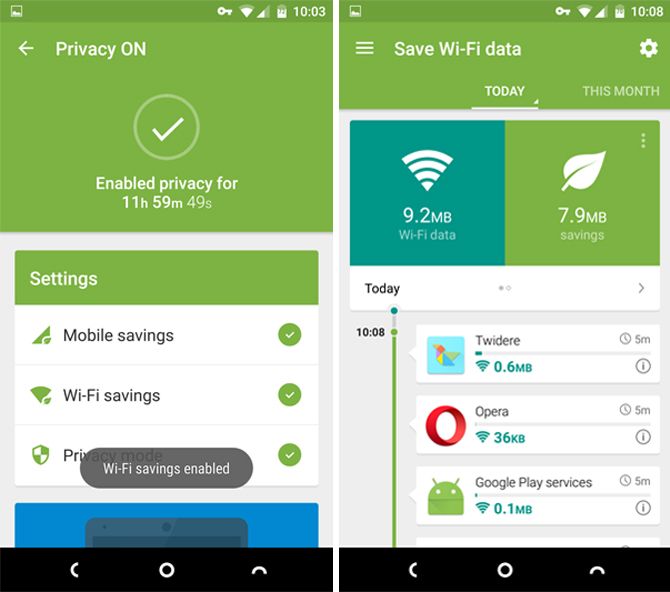
Opera Max also has a range of privacy functions. As a VPN, it gives you a greater level of anonymity online, stripping out ad trackers and other potential privacy concerns.
6 Logless VPNs That Take Your Privacy Seriously 6 Logless VPNs That Take Your Privacy Seriously In an age where every online movement is tracked and logged, a VPN seems a logical choice. We’ve taken a look at six VPNs that take your anonymity seriously. Read More
Opera Max is not without limitations. Free VPNs are often not as good as paid alternatives, and to get unlimited use, you do have to put up with ads on your charging screen. Plus there’s the question of whether you’re happy to have every data connection on your phone pass through Opera’s servers.
Download: Opera Max (Free)
Opera Browser and Opera Mini
The company also has browsers that work similarly, but only with your web data. Opera Browser has a data saving feature called Opera Turbo. It compresses web pages, including all the content such as images and video.
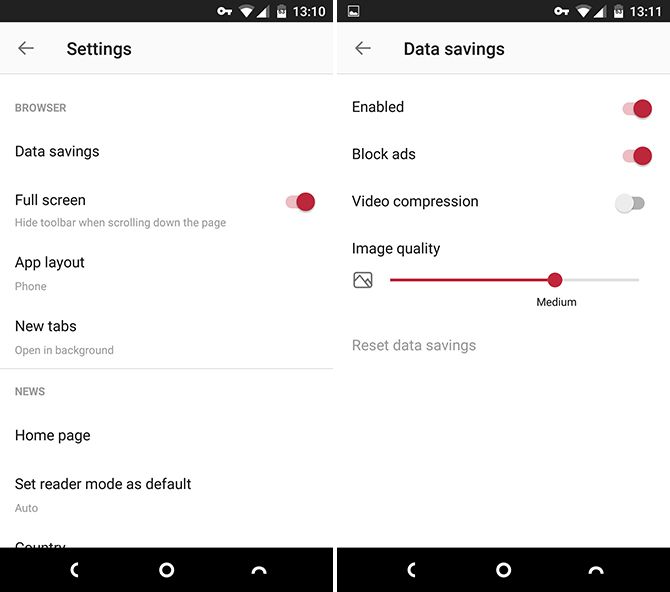
The browser is Chromium-based, so it renders pages exactly as Chrome does, but it has a few extra features not seen in Chrome too. These include a very useful “reflow” function that ensures text always fits within the width of the screen no matter how close you zoom in.
How Do Browsers Display Web Pages, and Why Don’t They Ever Look the Same? How Do Browsers Display Web Pages, and Why Don’t They Ever Look the Same? Read More
Opera Turbo can compress your web content by up to 50%. If you’re on a very tight data plan, you can use Opera Mini instead. This reduces web pages to 10% of their original size, although you may lose some functionality in certain sites as a result.
The advantage of using a browser for data compression is that you only need to use it when you want to save data. You can use your normal browser when you’re on Wi-Fi, and only switch to Opera when you need to.
Download: Opera Browser (Free) and Opera Mini (Free)
Facebook Lite
Most people use Facebook, and most use it with the official Facebook app. It isn’t the most easy-going app when it comes to data use. The Facebook app will be constantly connecting in the background and bombarding you with notifications throughout the day.
How to Disable Facebook and Other Notifications in Chrome How to Disable Facebook and Other Notifications in Chrome Read More
Fortunately, you don’t have to settle for the official client. There are a huge number of alternative Facebook apps that are worth investigating.
Facebook Lite is an official client designed for regions where lower spec phones and very limited data plans are commonplace. It isn’t available if you aren’t in one of those regions (here’s the link, if you want to try). It will reduce your data usage, and it also performs better on less powerful devices.
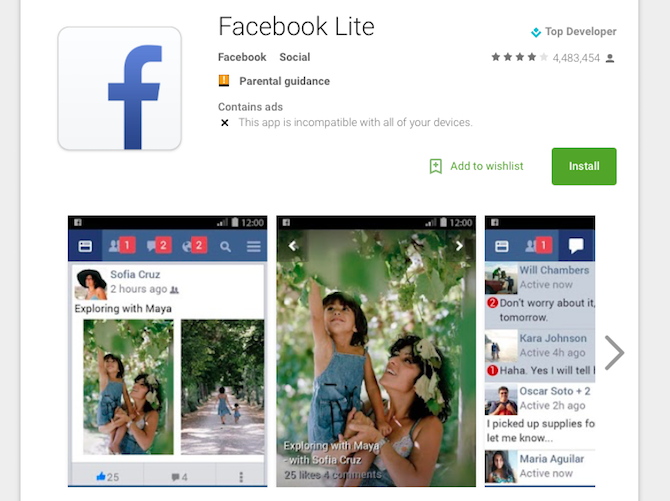
Otherwise, check out Friendly for Facebook. This free app is an enhanced wrapper for the mobile version of the Facebook website. This means it has all the expected features, like notifications and Messenger support, but it goes much easier on both your battery and your data plan.
Twitter also has countless third party clients that are more data friendly. With Snapchat and Instagram, though, you will need to stick to the official apps.
Download: Facebook Lite (Free) and Friendly for Facebook (Free)
NetGuard – No Root Firewall
One surefire way to burn through your data allowance is to install apps that want to constantly go online to sync and download stuff. The trouble is, it isn’t possible to know which apps are going to do this. Since Android 6.0 Marshmallow, apps have not had to explicitly request the internet permission, meaning any app can go online without you knowing.
Android offers ways to reign these apps in, but they’re not especially easy to use. Nougat has a basic Data Saver feature that enables you to prevent apps from going online (go to Settings > Data usage > Data saver). On older versions of the operating system, you need to do it manually for each app — go to Settings > Apps, choose the app, then select Data usage > Restrict app background data.
7 Reasons You’ll Want to Upgrade to Android Nougat 7 Reasons You’ll Want to Upgrade to Android Nougat If you’re thinking about making the jump to Android 7.0 Nougat, maybe these features could convince you. Read More
Both of these methods only work to prevent background data use and only restrict mobile data. A better option is to use NetGuard, a firewall app that gives you complete control over which apps can access the internet and when.
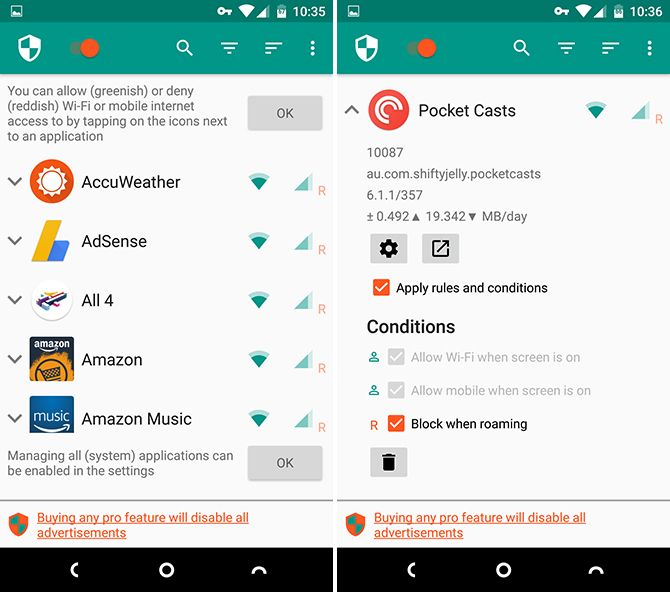
It’s easy to use. Simply grant or revoke access to mobile, Wi-Fi, or roaming data for each app. Then, fine-tune your settings by determining whether you want to allow access at all times, or just when you’re actually using the app.
It’s an effective way of preventing apps — especially things like news and weather apps — from automatically syncing in the background. They’ll only update when you need them to.
Download: NetGuard (Free)
My Data Manager
My Data Manager is an app that enables you to keep an eye on all aspects of your phone’s data usage. Like the built-in Android tools, it lets you see which apps are using data, and how much they’re using. But it goes much further than that.
You get the choice between a persistent notification or a home screen widget. Both update in real time to show you how much of your allowance is being used.
6 Handy Android Widgets for Your Homescreen 6 Handy Android Widgets for Your Homescreen The Android homescreen is a central hub for your most used apps and folders. It is also a great location for placing widgets that provide a quick overview of what is going on in the… Read More
If you’re on a very restrictive plan, this will help ensure you don’t get hit by any excess charges. Especially with the help of a set of configurable alarms that will not only warn you when you get close to your limit, but will also give you a heads-up if your current usage patterns are likely to push you over.
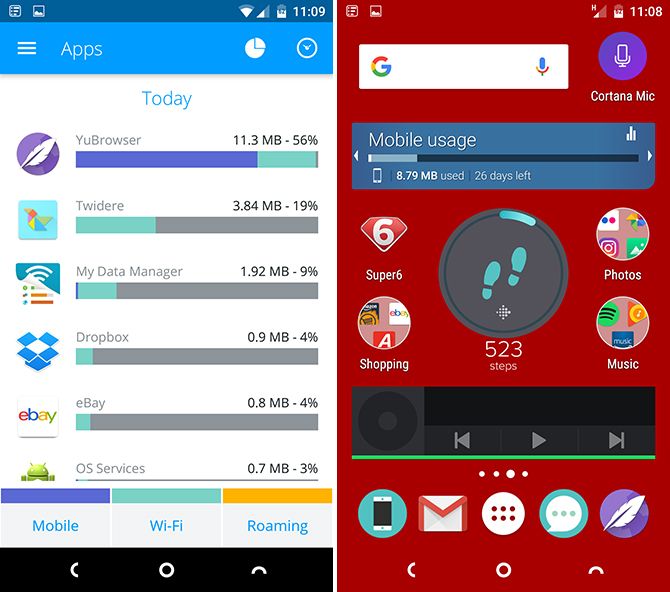
Handily, My Data Manager doesn’t just track mobile and Wi-Fi data usage — it also tracks roaming data use. This is usually both the most limited and the most expensive option. So even if you’re on an all-you-can-eat plan at home, the app is still useful when you aren’t.
No Roaming Fees: How Traveling Internationally Can Be Cheaper No Roaming Fees: How Traveling Internationally Can Be Cheaper There’s no reason to spend a dime on roaming fees. Yet, I constantly hear about people forking over their hard-earned money to talk with friends or family while traveling abroad. Read More
Download: My Data Manager (Free)
More Ways to Save Data
You can make sure your data plan goes as far as possible with the right choice of app. Along with these, there are a few other techniques you can use to avoid wasting data:
- Turn on the Data saver feature in Chrome to compress all the data you use within the browser.
- In Spotify, download music over a Wi-Fi connection. Set the app to work in Offline mode whenever you’re using mobile data.
- Download content wherever possible in apps that normally use a data connection. Google Maps and Amazon Video are among those that support downloading.
- If a free app offers a paid upgrade to an ad-free version, then consider paying. Ads use small amounts of data and battery, especially in apps that don’t otherwise need an internet connection.
You should be able to make your data last the full month with these tips and apps, thereby reducing your

